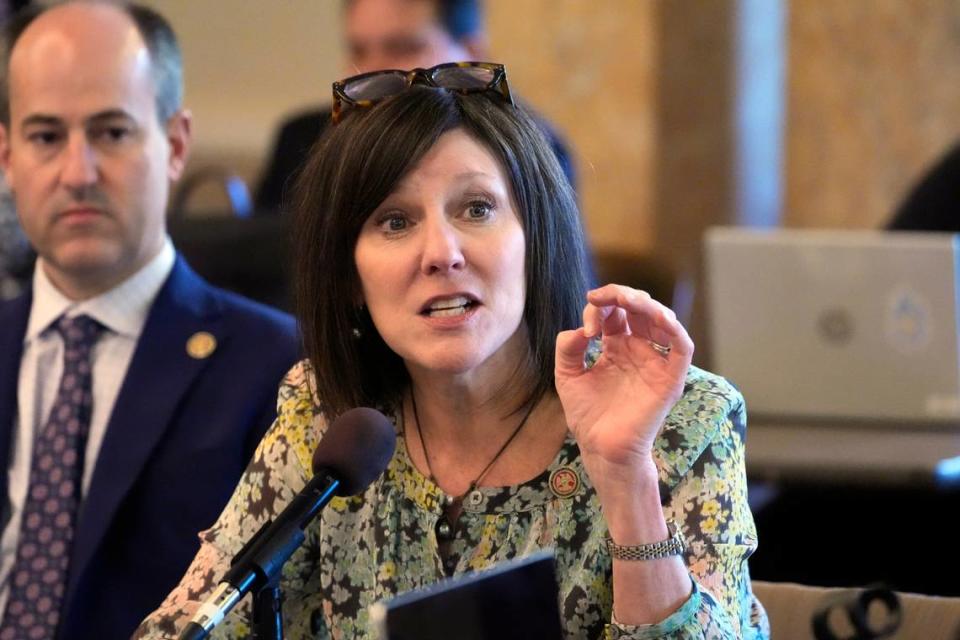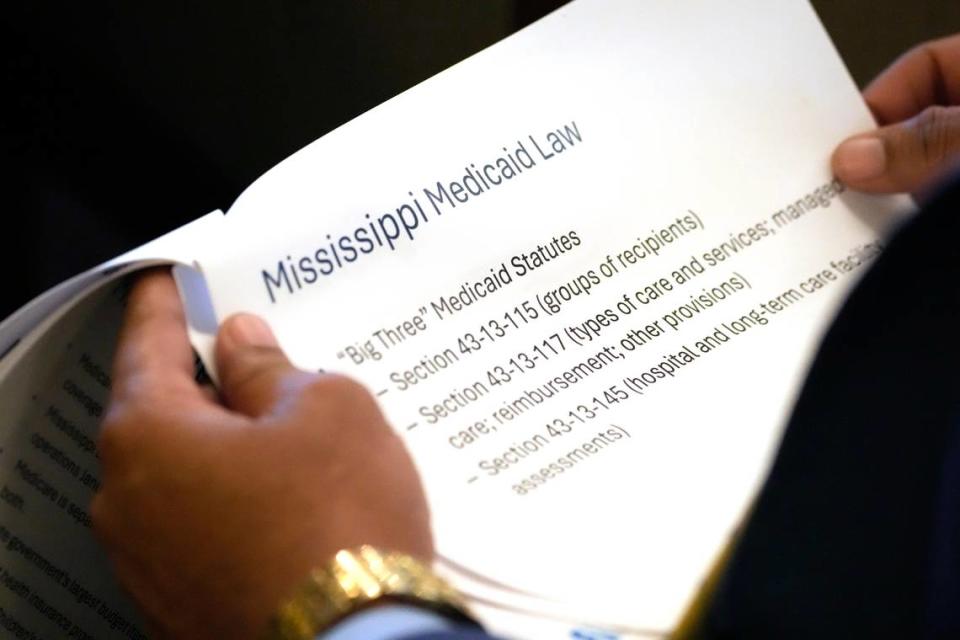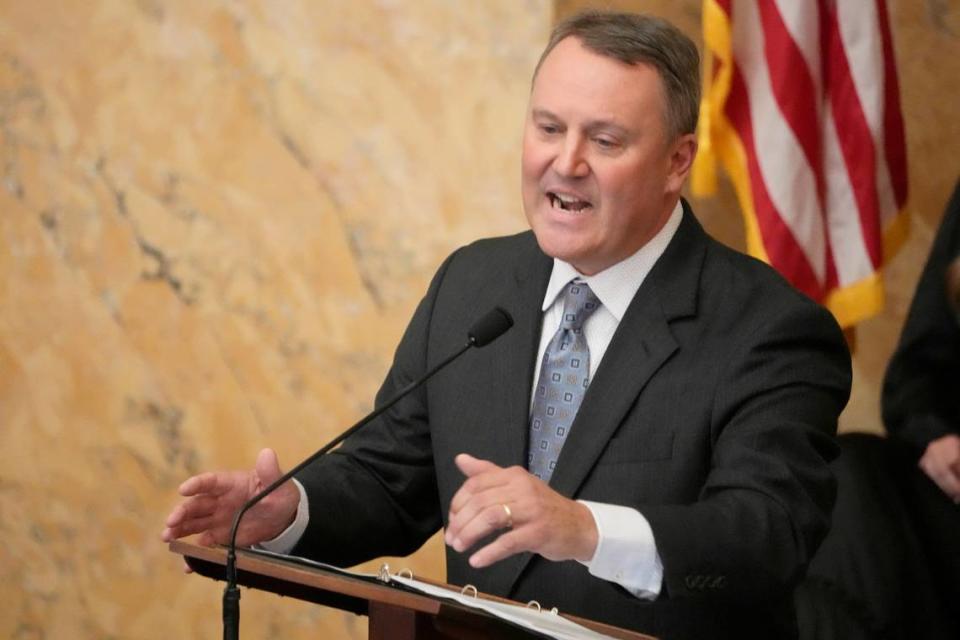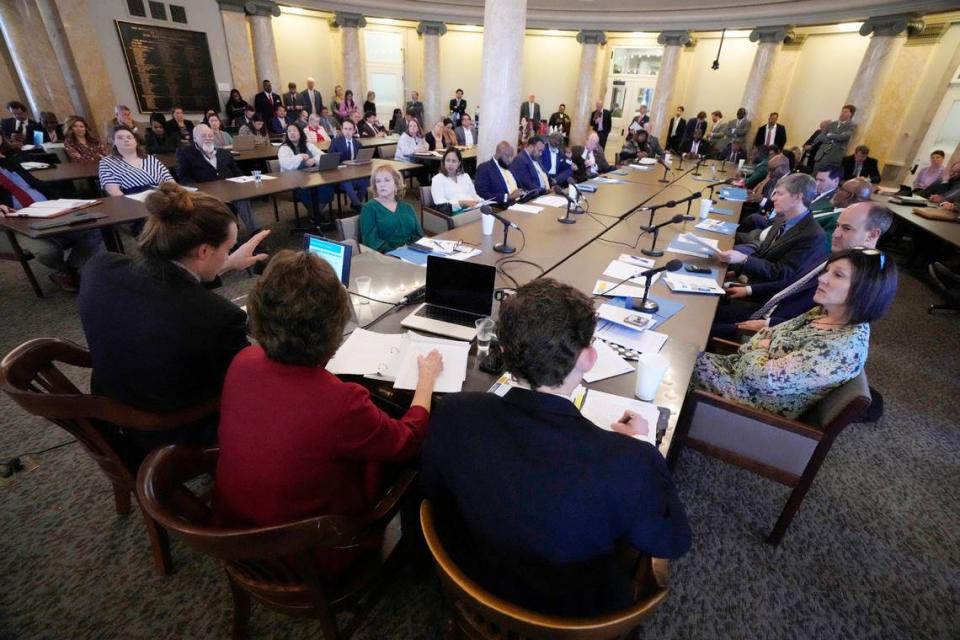Reeves privately tells senators he’ll veto any Medicaid expansion bill lawmakers send him
- Oops!Something went wrong.Please try again later.
Republican Gov. Tate Reeves summoned a group of state senators to the Governor’s Mansion in early March and privately told them he will veto any Medicaid expansion bill lawmakers pass, two senators told Mississippi Today.
Reeves invited the group of about 15 senators to the Governor’s Mansion to socialize with him — a common occurrence when the Legislature is in session — at a critical time for the GOP-controlled Senate.
Numerous Capitol observers also say Reeves’ legislative team has put on a full-court press lobbying the Senate against Medicaid expansion.
The Senate faces deadlines for action, and at this point Medicaid expansion is in its hands after the House overwhelmingly passed an expansion proposal on Feb. 28. This marked the first earnest movement on expansion in the state since Congress passed the Affordable Care Act.
Staffers for Reeves, who has long emphatically and publicly opposed expansion, did not respond to a request for comment about the event or his remarks.
Reeves has taken to social media over the last few weeks to reiterate his opposition to expansion. He wrote on X, formerly known as Twitter, on March 8 that President Joe Biden during his State of the Union speech supported the Affordable Care Act and Medicaid expansion.
“Our country is going broke and he wants to add millions more to the welfare rolls,” Reeves said. “We have to stand strong in Mississippi! NO Obamacare Medicaid expansion!”

Numerous studies show expanding Medicaid would provide health care coverage to at least 200,000 Mississippians and bring the state up to $1.6 billion in additional federal funds per year.
The GOP-majority House last month overwhelmingly passed a bill to expand Medicaid eligibility to 138% of the federal poverty level, or about $20,000 annually for an individual. It would cover primarily the working poor, as well as those exempt from working due to disability or extenuating circumstances, and only a small number of unemployed and non-exempt adults.
The House bill contains a work requirement for recipients of Medicaid expansion, but it ensures that the expansion would go into effect even if the federal government does not approve the work requirement.

The House bill, which passed with a veto-proof majority, is pending in the Senate, where Republican leaders have been working behind closed doors on some version of Medicaid expansion. But even as deadlines approach, Senate leaders have not released specifics of their own proposal.
The federal government pays 90% of the cost for those covered by Medicaid expansion -- 95% for the first two years. In addition to providing health coverage to poor Mississippians who need it, studies have shown Medicaid expansion would be a boon for the state economy. For the first four years, there is projected to be no cost to the state because of $600 million in additional federal funds offered as an incentive to expand Medicaid.
Medical and business leaders in Mississippi have endorsed the plan because they believe expanding the program can lead to better health outcomes and reduce the amount of uncompensated care that hospitals are often forced to write off.

Republican House Speaker Jason White, at a Feb. 28 press conference after the House passed its expansion plan, heralded the House vote but said Reeves is “due his say” on Medicaid expansion because he is the “duly elected governor” of Mississippi and was recently reelected to a second term.
“You’re looking at a supporter of Gov. Reeves,” White said at the press conference. “I just simply think you can be a supporter, a champion of Gov. Reeves leading our state as the governor and you can still be for finding a workable health care solution for this population of Mississippians who are in the coverage gap.”
The Republican-majority Senate has not yet passed a Medicaid expansion bill and faces a Thursday deadline to take action on its own “dummy bill,” or a bill that simply lists Medicaid code sections — not a substantive, specific expansion plan.

Senate Medicaid Chairman Kevin Blackwell, R-Southaven, declined to comment on the governor’s remarks on Tuesday, and he told Mississippi Today on Monday evening that he had virtually no update on where the 52-member Senate stood on passing an expansion bill.
Ahead of the Thursday deadline, Blackwell could attempt to pass the dummy bill on the floor, amend the dummy bill with a substantive Medicaid expansion plan, or let the Senate bill die altogether. Even if the Senate dummy bill dies on Thursday, the House expansion plan will still be alive for Senate consideration or amendments.
Meanwhile, Blackwell would not disclose what his plans were this week on expansion.
“You’ll just have to wait and see,” Blackwell said when asked what the Senate would do on Thursday.
If the governor vetoes a Medicaid expansion bill, two-thirds of lawmakers would need to vote in favor of overriding the veto before the bill can become law. If a two-thirds majority cannot be garnered in both the House and Senate, the bill will die at the governor’s hand.

